Related Research Articles
Within the Muslim world, sentiment towards LGBTQ people varies and has varied between societies and individual Muslims, but is contemporarily negative. While colloquial and in many cases de facto official acceptance of at least some homosexual behavior was commonplace in pre-modern periods, later developments, starting from the 19th-century, have created a generally hostile environment for LGBTQ people. Most Muslim-majority countries have opposed moves to advance LGBTQ rights and recognition at the United Nations (UN), including within the UN General Assembly and the UN Human Rights Council.
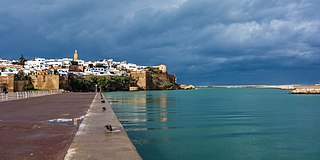
Rabat is the capital city of Morocco and the country's seventh-largest city with an urban population of approximately 580,000 (2014) and a metropolitan population of over 1.2 million. It is also the capital city of the Rabat-Salé-Kénitra administrative region. Rabat is located on the Atlantic Ocean at the mouth of the river Bou Regreg, opposite Salé, the city's main commuter town.
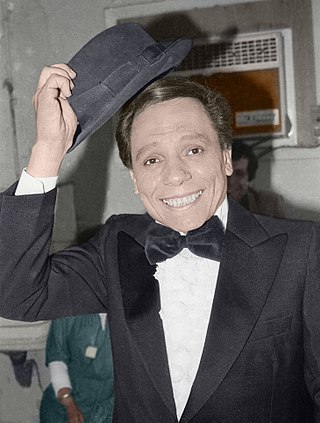
Adel Emam is an Egyptian film, television, and stage actor. He is primarily a comedian, but he has starred in more serious works and, combined comedy with romance especially in his earlier secondary roles in films such as My Wife, the Director General, My Wife's Dignity, My Wife's Goblin and Virgo, all films starring Salah Zulfikar.
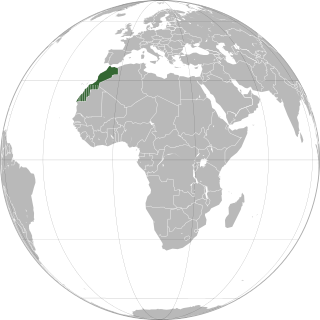
Lesbian, gay, bisexual and transgender (LGBT) people in Morocco face significant challenges not experienced by non-LGBT residents.

The culture of Morocco is a blend of Arab, Berber, Andalusi cultures, with Mediterranean, Hebraic and African influences. It represents and is shaped by a convergence of influences throughout history. This sphere may include, among others, the fields of personal or collective behaviors, language, customs, knowledge, beliefs, arts, legislation, gastronomy, music, poetry, architecture, etc. While Morocco started to be stably predominantly Sunni Muslim starting from 9th–10th century AD, during the Almoravid period, a very significant Andalusi culture was imported, contributing to the shaping of Moroccan culture. Another major influx of Andalusi culture was brought by Andalusis with them following their expulsion from Al-Andalus to North Africa after the Reconquista. In antiquity, starting from the second century A.D and up to the seventh, a rural Donatist Christianity was present, along an urban still-in-the-making Roman Catholicism. All of the cultural super strata tend to rely on a multi-millennial aboriginal Berber substratum still present and dating back to prehistoric times.

Prince Moulay Abdellah Stadium (Arabic: المجمع الرياضي الأمير مولاي عبد الله) was a multi-purpose stadium in Rabat, Morocco. It was named after Prince Moulay Abdellah of Morocco, It was the home of AS FAR since their formation in 1983.
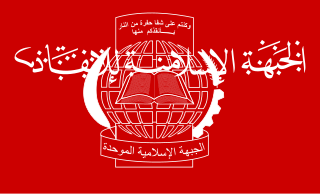
The Islamic Salvation Army was the armed wing of the Islamic Salvation Front, which was founded in Algeria on 18 July 1994. It was ordered to dissolve by the Supreme Court of Algeria in 1992. Since then, many of its members have either been arrested or forced into exile. The army had about 4,000 men in western and eastern Algeria, and later 40,000 men in 1994. It pledged allegiance to imprisoned FIS leaders Abbasi Madani and Ali Benhadj. It was supported by Libya and Saudi private donors, and allegedly by Morocco and Iran.

A Jihad for Love is a 2008 documentary film written and directed by Parvez Sharma and was the world's first film on Islam and homosexuality. It took a total of six years to make and premiered at the Toronto International Film Festival in September 2007. It premiered at the Berlin Film Festival in 2008 as the opening documentary film for the Panorama section.

Cinema of Morocco refers to the film industry of Morocco. Aside from Arabic-language films, Moroccan cinema also produces Tamazight-language films.

Merzak Allouache is an Algerian film director and screenwriter. His 1976 film Omar Gatlato was later entered into the 10th Moscow International Film Festival where it won the Silver Prize. His 1996 Salut cousin! was submitted to the 69th Academy Awards in the category of Best Foreign Language Film. He is one of the most influential Algerian filmmakers, considered by some to be the most important. He is the only Algerian filmmaker who devoted most, if not all, of his cinematic work to his native country.

Abdellah Taïa is a Moroccan writer and filmmaker who writes in the French language and has been based in Paris since 1999. He has published nine novels, many of them heavily autobiographical. His books have been translated into Basque, Dutch, German, English, Italian, Portuguese, Romanian, Greek, Spanish, Swedish, Danish and Arabic.
Beirut39 is a collaborative project between the Hay Festival, Beirut UNESCO's World Book Capital 2009 celebrations, Banipal magazine and the British Council among others in order to identify 39 of the most promising Arab writers under the age of 39. The project was carried out during 2009-10 and followed on the success of Bogotá39, an earlier contest held in 2007 to identify the most promising young Latin American writers. In connection with Port Harcourt being World Book Capital 2014, Africa39 was launched by the Hay Festival, featuring 39 writers under the age of 40 from sub-Saharan Africa.
In&Out, originally called Rencontres Cinématographiques, was a queer film festival that took place every April in Nice and Cannes in France from 2009 to 2016. It was organized by the association Les Ouvreurs.
Amira Charfeddine is a Tunisian novelist. Her first novel, Wild Fadhīla, was written in Tunisian Arabic and is the first major Tunisian novel to feature a gay protagonist. The novel was commercially successful, selling 2,000 copies within a month of its release in April 2019. It was awarded the Ali Douagi prize from the Derja Association for best work written in Tunisian Arabic in 2019.
Volubilis is a French-Moroccan film directed by Faouzi Bensaïdi, released in 2017. It was screened at a number of international film festivals.
Zanka Contact is a 2020 Moroccan film directed by Ismael El Iraki. Described as a Wild at Heart-type love story with debts to Quentin Tarantino and Sergio Leone, the film was inspired by El Iraki's emotional journey and recovery after he found himself in the midst of the horrors of the 2015 Bataclan attacks in Paris. Following a screening at the 77th Venice International Film Festival where the film's lead actress, Moroccan singer Khansa Batma, won the Venice Orizzonti Award for Best Actress, the film went on to be selected for over thirty international festivals and won several awards through its festival run 2020 to 2022. Among them, Zanka Contact was awarded the Golden Tutankhamun Award for best feature film at the Luxor African Film Festival.
Abdellah Mesbahi was a Moroccan filmmaker.
Imane Mesbahi is a Moroccan actress and filmmaker.
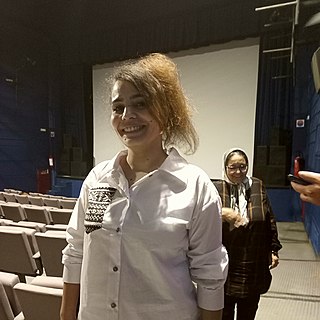
Asmae El Moudir is a Moroccan film director, screenwriter and producer. She gained great recognition and national and international fame through her successful documentary The Mother of All Lies, for which she also won several awards.
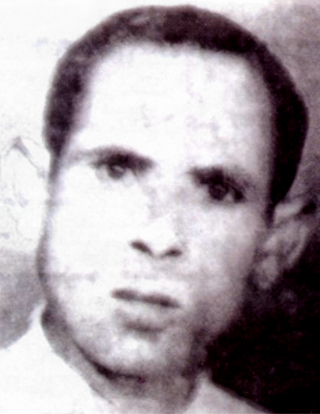
Allal ben Abdallah ben Bachir Zerouali was a Moroccan laborer who attempted to assassinate the French-installed Sultan, Mohammed ben Arafa.
References
- ↑ "Salvation Army". Film at Lincoln Center. Retrieved 2021-11-16.
- ↑ "Salvation Army". SFFILM. Retrieved 2021-11-16.
- ↑ Kenigsberg, Ben (2015-01-22). "He Loves Me, He Loves Me Not — Oh, Hi, Dad". The New York Times. ISSN 0362-4331 . Retrieved 2021-11-16.
- ↑ "Abdellah Taïa: 'In Arab countries, homosexuality is a crime. This has to change'". the Guardian. 2014-10-03. Retrieved 2021-11-16.
- ↑ "Safar: Salvation Army". archive.ica.art. Retrieved 2021-11-16.
- ↑ "L'ARMÉE DU SALUT (SALVATION ARMY)". AFRIKAMERA. 2016-10-20. Retrieved 2021-11-16.
- ↑ "Salvation Army (L'Armée du salut)". Cineuropa - the best of european cinema. Retrieved 2021-11-16.
- ↑ Taïa, Abdellah (2009-03-27). Salvation Army. Semiotext(e) / Native Agents. Translated by Stock, Frank. Cambridge, MA, USA: Semiotext(e). ISBN 978-1-58435-070-5.
- 1 2 Hoeij, Boyd van (2013-09-03). "Salvation Army (L'Armee du Salut): Venice Review". The Hollywood Reporter. Retrieved 2021-11-16.
- ↑ "Exclusive interview: 'There is a place for gays in Islam'". France 24. 2013-09-05. Retrieved 2021-11-16.
- ↑ Weissberg, Jay (2013-09-12). "Venice Film Review: 'Salvation Army'". Variety. Retrieved 2021-11-16.
- 1 2 Frosch, Jon (2013-09-06). "'There's a Place for Gays in Islam'". The Atlantic. Retrieved 2021-11-16.
- ↑ "Festival Scope". pro.festivalscope.com. Retrieved 2021-11-16.
- ↑ "Venice: Arab film features gay protagonist". Associated Press .